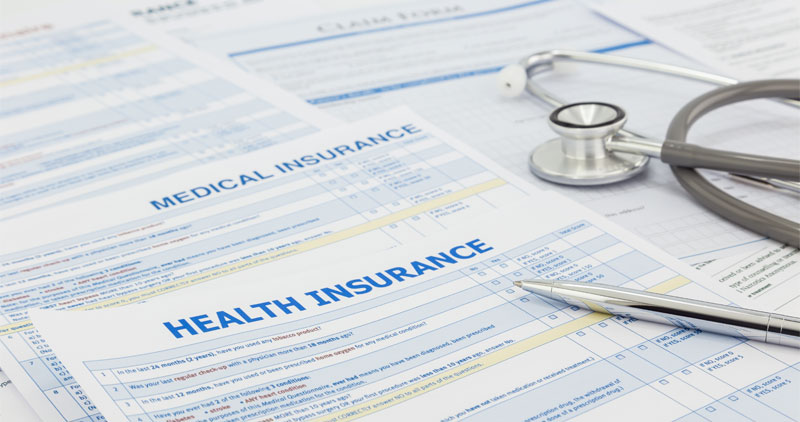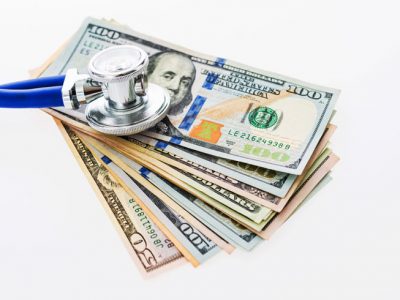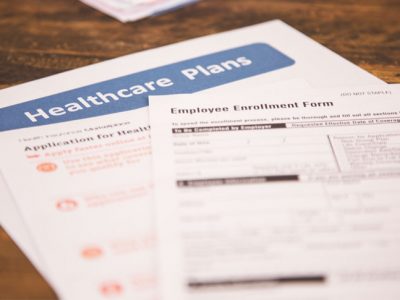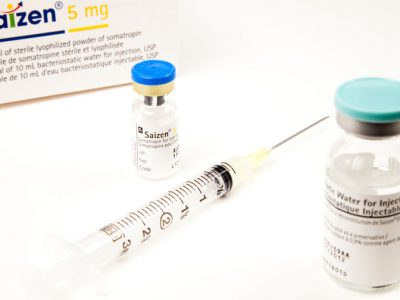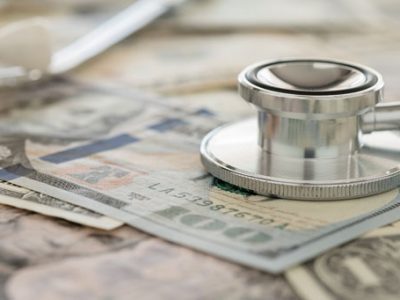- Home
- Growth Hormone
- Growth Hormone
- Growth Hormone Deficiency
- Growth Hormone Therapy
- Growth Hormone Injections
get startedThe Most Effective Hormone Replacement TherapiesInsurance Coverage for Growth Hormone Therapy
- The cost of your HGH injections is rarely covered by health insurance.
- If you do not have prescription drug coverage, there still may be ways to save on your growth hormone injections.
- Even if you do not have insurance, if you need HGH replacement, you should never let the potential cost of HGH injections to be your only deciding factor in taking them or not.
With so many different types of health plans and health insurance carriers in the US, it is hard to provide a definitive answer as to whether growth hormone replacement therapy is covered by your health insurance plan. It really depends on your individual plan and the reasons why you have been prescribed HGH.
We understand that when considering the types of treatment available for any medical procedure, cost is a concern for patients. The cost of growth hormone therapy is no exception. Managing the costs of growth hormone therapy is made even a bit more complicated than other procedures because there is some confusion when it comes to hormone therapy coverage by insurance providers. Currently, the FDA has approved the use of growth hormone therapy as a treatment plan for growth hormone deficiencies resulting in arrested development in children and for the loss of muscle that occurs in HIV/AIDS patients. When it is prescribed for either of these uses, it is almost always covered regardless of the type of insurance plan.
However, there is also another kind of growth hormone deficiency for which HGH therapy is used, known as "age-related" or "adult-onset" growth hormone deficiency or "AGHD." AGHD is a medically recognized condition; however, full coverage for the treatment of adult-onset GHD is a bit of a gray area, with some types of providers offering coverage for HGH injections and related treatments, others only the related treatments such as tests and regular check-ups, and still others denying coverage altogether.
With few exceptions, health insurance rarely, if ever will pay for a prescribed growth hormone therapy.
Will My Insurance Cover Growth Hormone Therapy?
One of the most common concerns on the minds of patients who have medical insurance is, "Does my insurance cover growth hormone therapy?" The simple answer is, "Yes, no, and maybe." If that sounds a little confusing, it is – because health insurance paying or denying a claim for growth hormone therapy depends on a wide variety of factors.
As mentioned above, when treating growth hormone deficiency in children who fail to meet growth benchmarks per the established medical guidelines, growth hormone therapy is rarely denied for those who have adequate medical insurance.
When it comes to AGHD, coverage guidelines are not nearly as clear. Let’s take a closer look at hormone replacement therapy costs, insurance coverage for HGH, and ways you may be able to save money on the basic cost of a monthly prescription for growth hormone therapy.
Will Insurance Cover Growth Hormone Replacement for Adults?
Health insurance may cover growth hormone therapy for patients diagnosed with AGHD, but it depends on several factors, including the specific insurance plan, if your coverage includes a prescription plan, the nature of your current symptoms, and whether the therapy is deemed “medically necessary” by the issuer of your health benefits.
In general, most health insurance companies have strict criteria for providing medication coverage for growth hormone therapy in adults. For HGH injections to be deemed "medically necessary," adult patients typically must undergo a series of diagnostic tests, including stimulation tests that demonstrate insufficient growth hormone production. If the deficiency is confirmed and it is clear that the condition is not simply "natural decline" but is causing significant health issues — such as decreased muscle mass, reduced bone density, or cardiovascular problems, the HGH replacement may be considered “medically necessary.”
Factors that influence medical coverage for growth hormone replacement therapy for adults who may be growth hormone deficient include:
- Medical Necessity: The patient’s healthcare provider must demonstrate that growth hormone treatment is essential for relief from symptoms of AGHD and improving the patient’s quality of life. Just having uncomfortable symptoms is not enough; "medically necessary" usually means that without ongoing hormone therapy, you can fall victim to serious health issues like the risk of heart disease, diabetes, or osteoporosis.
- FDA-Approved Indications: Growth hormone therapy is FDA-approved for AGHD, so insurers are more likely to cover it if the therapy aligns with the approved uses.
- Prior Authorization: Insurance providers usually require prior authorization before covering GHT, which involves a detailed review of the patient’s medical history, test results, and the doctor’s justification for the therapy.
- Policy Limitations: Coverage may vary widely between insurance plans. Some plans may cover the therapy under specific conditions, while others may deny coverage or limit the duration of the therapy.
- Age-Related Growth Hormone Deficiency: Many insurance companies may not recognize the long-term benefits of HGH for individuals whose growth hormone levels decline due to natural aging if they do not meet the clinical criteria for AGHD. They typically distinguish between pathological AGHD and normal age-related hormone decline, with the former being more likely to be covered.
Patients seeking insurance coverage for growth hormone therapy should consult both their healthcare provider and insurance company for specific guidance on coverage, required documentation, and diagnostic criteria.
Depending on your growth hormone prescription, and your individual needs and lifestyle, you could expect to pay anywhere from 500.00 to 1000.00 or more per month for growth hormone therapy.
What Is the Cost of Not Having HGH Therapy?
If you are considering growth hormone therapy, it is impossible to have a discussion about the cost of HGH therapy without taking into account the "cost" of NOT having HGH therapy. Yes, there are costs involved in having growth hormone therapy; there is no getting around that. But, when considering the costs of a prescription for HGH, what you really need to do is weigh the benefits of HGH therapy vs its costs. When you do that kind of cost vs benefit analysis, growth hormone therapy almost always comes out to be a worthwhile investment in your health and improved quality of life.
The actual cost of growth hormone therapy varies greatly. Depending on your growth hormone prescription and your individual needs and lifestyle, you could expect to pay anywhere from 500.00 to 1000.00 or more per month for growth hormone therapy. Men usually require a lower dose of HGH than women, so men tend to pay less for growth hormone therapy.
The "costs" of not having HGH therapy go beyond the "costs" to your health. In the long run, it may cost you more money not to have growth hormone therapy. If you think of all of the negative conditions that HGH therapy can prevent or reverse, such as high cholesterol, diabetes, heart disease, and osteoporosis – and how much money you would spend on doctor’s visits and medications to treat these conditions, you can easily see how growth hormone therapy can actually save you money in the long run!
Is there an Alternative to the Cost of Growth Hormone Therapy?
The most effective way to treat age-related growth hormone deficiency in adults is with prescription growth hormone therapy. However, in some cases, there is a lower-cost alternative to HGH therapy, which may help. It is known as Sermorelin.
Sermorelin therapy can be a lower-cost alternative to growth hormone therapy. It is not right for all people who are suffering from age-related GHD, and it will still depend on your blood tests for growth hormone. Depending on the results of your HGH test, your doctor could conclude that you are a candidate for Sermorelin therapy rather than growth hormone replacement therapy.
Sermorelin stimulates your body to produce more HGH. If you are only slightly HGH deficient, Sermorelin therapy, along with a doctor-prescribed regimen of diet and exercise, could be enough to raise your level of HGH and negate your symptoms of HGH deficiency. Over time, Sermorelin injections can save you a significant amount of money over prescription HGH injections, but only your doctor can decide if Sermorelin alone can treat your particular condition. In fact, in some patients, doctors will combine HGH therapy with Sermorelin Therapy.
What Should Be Included in the Cost of Your Growth Hormone Therapy?
Remember, when evaluating the costs of HGH therapy, you have to consider that what goes into the cost of growth hormone therapy is more than just the cost of the HGH. The price of the HGH prescription may be the lion’s share of the cost, but other things factor into the cost of your therapy, such as blood tests, follow-up doctor’s visits, and perhaps some additional nutritional supplements. Make sure when you get a quote for the monthly fee for growth hormone therapy, you know exactly what you are getting.
Are There Ways to Save Money If I Am Not Insured for Growth Hormone Therapy?
We understand that HGH therapy is one of the more costly forms of hormone replacement. With all we have discussed so far about the expense for hormone treatment, the good news is that there are ways to lower the cost. One way we mentioned earlier is perhaps you can qualify for a lower-cost treatment option such as Sermorelin.
Many of the pharmaceutical companies that produce brand-name products often offer discount programs for patients who need HGH but do not have health insurance. These companies also often have case managers, or care specialists, who will help you to file an appeal with your insurance company if they have denied coverage for your growth hormone therapy.
Beyond that, if you come to Kingsberg Medical for your growth hormone therapy, our doctors and treatment team will work with you to keep your HGH therapy within your needs and budget. Your doctor will start out with the lowest dose of HGH he or she believes will be effective for you. Beyond that, as part of your HGH therapy, you will be introduced to diet, fitness, and other lifestyle changes, all designed to help naturally raise and maintain a healthier level of HGH.
The bottom line is this: if you feel you need HGH therapy, do not ignore your symptoms because you think you do not have prescription coverage for HGH therapy.
Contact Us today to learn more about the actual costs of HGH therapy. Even if you do not have insurance coverage, you should not let the cost of HGH be the deciding factor when choosing to take it or not. There are ways to make your treatment more affordable.
Even if you do not have insurance, you should not let the cost of HGH be the deciding factor in choosing to take it or not. There are ways to make your treatment more affordable.
read this next
How Much Does it Cost to Treat Low Testosterone?
Testosterone therapy is a clinically proven, safe and effective way to raise the testosterone levels of men who have been diagnosed with low testosterone,…read moreDoes Insurance Cover Growth Hormone Injections?
We understand that when considering any medical procedure, cost is a concern for patients. The cost of filing a prescription for growth hormone injections…read moreHow Much Do Human Growth Hormone Injections Cost?
Growth hormone therapy is the safest and most effective treatment for patients suffering from a growth hormone deficiency. Growth hormone therapy is prescribed as…read moreHow much do Testosterone injections cost?
Testosterone injections have many benefits for men with low testosterone. In fact, most providers of hormone replacement therapies for men agree that testosterone injections…read more - Growth Hormone Therapy








